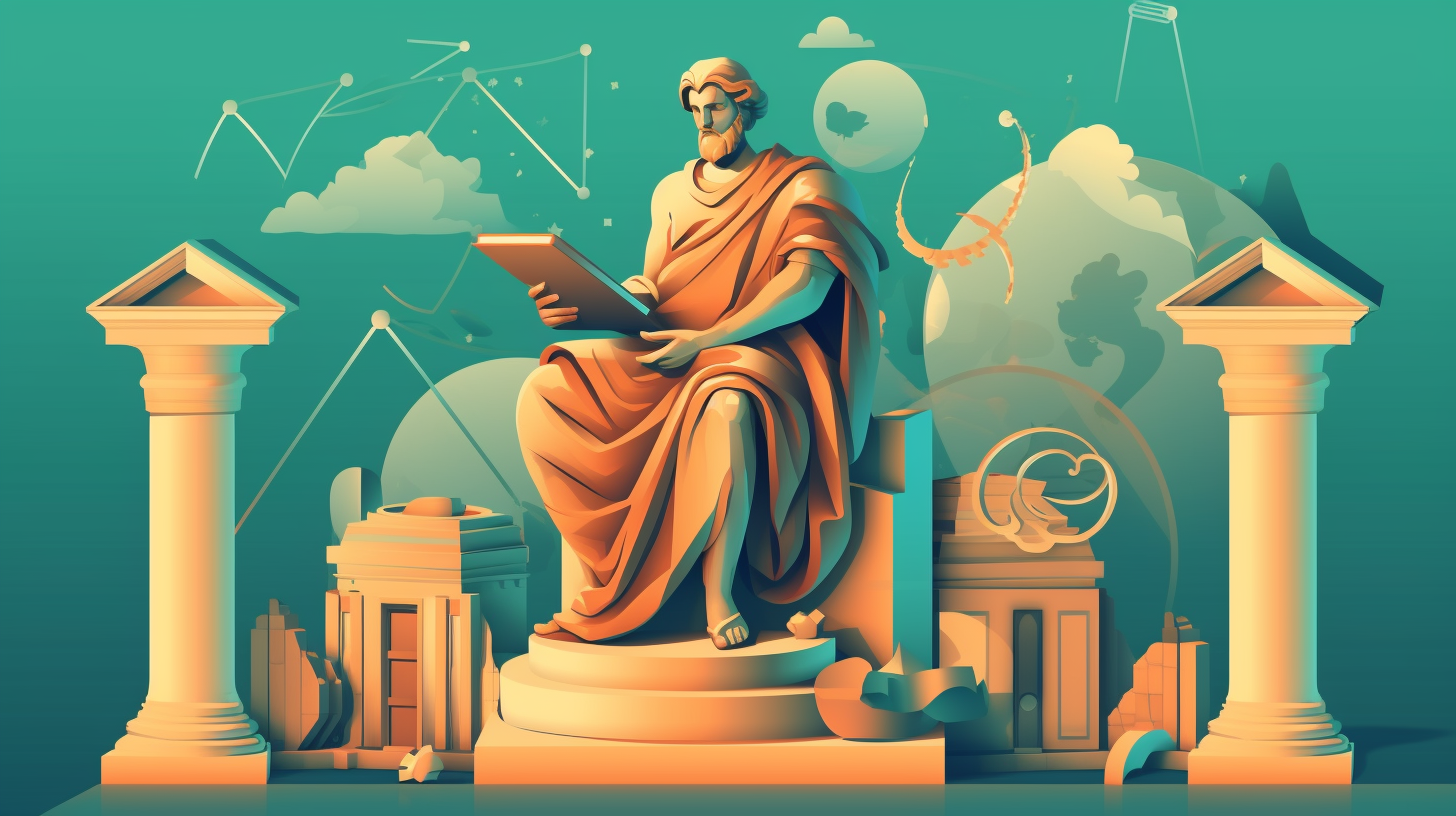Western Philosophy in the Digital Age: Navigating the Ethical Landscape
Introduction
An unprecedented epoch is unfolding in the vast expanse of our digital age. The realm of technology, with its transformative might, permeates our lives, reshaping the very fabric of existence. It is within this intricate tapestry that questions of ethics and moral responsibility emerge, demanding our utmost attention. Western philosophy is a beacon of insight in this complicated dance between progress and principles, offering invaluable frameworks to navigate the complex ethical landscape accompanying our digital voyage.
In its relentless march, the digital revolution presents us with boundless opportunities for progress and connectivity. Once bound by temporal and spatial constraints, communication now transcends boundaries with effortless grace. Access to information, once the privilege of a select few, has been democratized, empowering individuals with knowledge and agency. Innovation, fueled by digital fire, dances across various fields, propelling us into uncharted territories of human potential. Yet, with these remarkable advancements, a shadow is cast that speaks of profound ethical challenges, demanding our unwavering scrutiny and critical contemplation.

Among the various concerns that pierce the heart of our digital existence, the issue of privacy and data protection emerges as a pressing concern. In this era of ubiquitous digital platforms, personal data becomes the currency of power, and individuals find themselves vulnerable to the prying eyes of surveillance, data breaches, and privacy infringements. The ethical dimensions of data collection, storage, and usage loom large, casting a skeptical gaze upon the essence of individual autonomy, consent, and the limits of corporate dominion.
Another arena of profound significance resides in the impact of digital technologies on human relationships and social interactions. The rise of social media, a double-edged sword of connection and alienation, reshapes the very contours of human connection. It affords us global networks and platforms for social activism, opening vistas of possibility. And yet, it casts a pall upon our collective consciousness—a dark cloud that looms over cyberbullying, echo chambers, and the erosion of genuine, face-to-face communication. In the depths of this moral problem lies the imperative for ethical reflection—a reflection that delves into the nature of the authentic human connection, the responsibilities of online platforms, and the profound impact of digital technologies on our well-being.
Western philosophy unfurls its majestic tapestry in this grand intellectual dance, illuminating the path before us. Utilitarianism, emphasizing the maximization of overall happiness or utility, offers a prism through which we may discern the ethical implications of our digital realm. It beckons us to evaluate the trade-offs, weighing the potential benefits against the potential harm to individuals and society—asking us to scrutinize the consequences of data collection and usage in the pursuit of a greater societal good.

Kantian ethics, steeped in the profound insights of Immanuel Kant, bestows upon us a precious framework to address the moral quandaries of this digital age. The categorical imperative, an unwavering principle that proclaims the importance of treating individuals as ends in themselves and not mere means, instills within us a reverence for individual autonomy and dignity. It calls upon us to recognize and safeguard the fundamental rights of privacy, informed consent, and control over personal data—the very bedrock of a just and ethical digital landscape.
Virtue ethics, guided by luminaries such as Aristotle, beckons us to cultivate virtuous character traits and moral excellence. In this vast terrain of the digital age, it acts as a compass, guiding us to develop virtuous habits and behaviours in our interactions with technology. It implores us to introspect on how digital technologies mould our character, values, and relationships—urging us to strive for virtues such as digital mindfulness, empathy, and responsible digital citizenship.

And within the grand symphony of thought, social contract theory finds its resolute place. Explored by philosophers such as Thomas Hobbes, John Locke, and Jean-Jacques Rousseau, it bestows us profound insights into the ethical dimensions of digital governance and regulation. As the digital age shifts the power dynamics and technology companies exert influence, the social contract beckons us to reevaluate our collective agreement. It propels us to ponder questions of digital sovereignty, accountability, and the imperative for collective action to shape ethical standards and regulations that govern the vast landscape of the digital realm.
In this culmination of thought, we find ourselves confronted by a complex and ethically charged landscape—a landscape replete with opportunities, challenges, hopes, and perils. With its vast reservoirs of wisdom, Western philosophy emerges as our guiding light—an intellectual North Star that offers profound insights and frameworks to navigate this uncharted terrain. With moral theories such as utilitarianism, Kantian ethics, virtue ethics, and social contract theory as our compass, we embark upon a journey of critical examination—an examination that unravels the ethical implications of digital technologies and empowers us to make informed decisions. We may aspire to foster an open and responsible digital society through this dialogue and ongoing reflection. Technological progress aligns harmoniously with our moral values and shared quest for human flourishing in this society.
As we forge ahead, navigating the currents of this digital era, let us heed the call for continuous philosophical reflection—a reflection that lends nuance and depth to our endeavours. Only through this enduring dialogue can we hope to harness technology's transformative power while safeguarding our humanity's fundamental tenets. May our digital voyage be guided by the intellectual giants of Western philosophy as we strive to shape a future that harmonizes moral rectitude and technological innovation—a future where the human spirit soars, unburdened by the shadows that lurk in the digital abyss.

